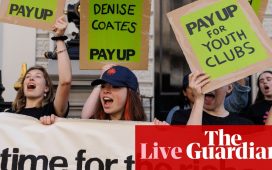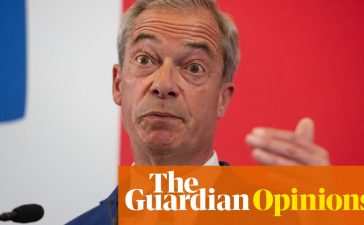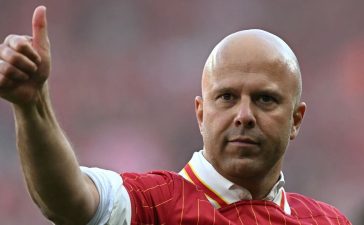Sunak: Over time, we can and we will cut taxes

UK prime minister Rishi Sunak has declared he believes in cutting taxes “carefully and sustainably”, in a speech on the UK economy.
Speaking ahead of Wednesday’s autumn statement, Sunak claimed his government’s approach was “one that gets inflation down and keeps it down”.
Sunak says:
“One that believes the private sector grows the economy and, where government has a role, it must be limited.
“One that believes in cutting taxes, but doing so carefully and sustainably.
“And one that is ambitious about the unprecedented opportunities for this country from the new wave of technology.”
Sunak then hailed last week’s drop in inflation to 4.6%, saying he has hit his pledge of halving inflation this year, so it is now time to “look forward towards the future economy that we want to build”.
However, the UK’s actual inflation target, which the Bank of England is charged with setting is actually 2%.
Nevertheless, Sunak argues that the government could now look at cutting taxes “over time” – possibly a hint that they could come next year, rather than this week?
He says:
“We will do this in a serious, responsible way, based on fiscal rules to deliver sound money, and alongside the independent forecasts of the Office of Budget Responsibility.
“And we can’t do everything all at once. It will take discipline and we need to prioritise.
“But over time, we can and we will cut taxes.”
Sunak: “now that inflation is halved & growth is stronger, meaning revenues are higher we can begin the next phases & turn our attention to cutting tax. We will do this in a serious & responsible way”
” Over time we can & we will cut taxes”Over time = income tax cuts in 2024?
— Ben Quinn (@BenQuinn75) November 20, 2023
Key events
The Night Time Industries Association has warned that one in five night time economy businesses, such as bars, nightclubs and live music venues, face collapse in January unless “substantial tax reductions” are announced in the autumn statement.
A poll of NTIA members found that:
-
20% of Businesses polled are facing potential closure in January without government support
-
72% of Businesses are either barely breaking even or losing money
-
95% of Businesses polled requested VAT cuts for the sector
-
78% of Businesses polled requested an extension of business rates relief
Michael Kill, CEO of the NTIA, warns:
“Without swift and decisive action from the government, we are on the precipice of witnessing the collapse of the night time economy and creative industries. The extension of business rates relief and a VAT cut are not only necessary for immediate survival but are crucial for the survival of businesses, but also in laying the foundation for future growth and job creation.”
“The Night Time Industries Association remains committed to working collaboratively with the government to develop and implement effective policies that will safeguard the future of these vital industries. The time to act is now, and NTIA urges policymakers to prioritize the hospitality, night time economy and creative industries in the Autumn budget this week”.
Rishi Sunak also spoke of the need to focus on the ‘supply side’ of the economy, which may be a hint that business tax cuts will be prioritised.
He said:
We want to support businesses to invest, innovate, and grow through lower taxes and simpler regulation.
Where we provide support, it should be targeted and strategic.
Sunak says he will now cut taxes: “We will do that carefully, we will do that responsibly, but that time is now here… Our priority has always been the supply side of our economy”. That suggests biz tax first – imperative it is the right ones and focus on pre-profit costs https://t.co/peuL4scD8H
— Kate Nicholls OBE (@UKHospKate) November 20, 2023
Business groups have been pushing for the current temporary “full expensing regime”, which lets firms offset investment spending against their tax bill, to be made permanent.
Some City economists believe Jeremy Hunt will announce tax cuts in Wednesday’s autumn statement.
Goldman Sachs have estimated that Hunt now has approximately £25bn of headroom which he can spend and still keep within the government’s fiscal mandate, thanks to a pick-up in tax receipts.
In a note to clients, Goldman predict the chancellor will make “modest tax reductions” costing up to £10bn, keeping some firepower back for the budget next March.
They say:
Measures that the government could consider include a reduction in inheritance tax, an extension of the full expensing capital allowances regime, or a cut in stamp duty
That said, we think that larger tax cuts are less likely at next week’s statement, because a more substantial fiscal loosening would risk raising inflation and interest rates. Instead, we expect the government to conserve the majority of its headroom for the Spring Budget.
Rishi Sunak also claimmed that the UK welfare system is not currently “sustainable”.
He was asked whether the government is planning a squeeze on welfare payments in the autumn statement.
The PM declined to “pre-empt” any announcements on Wednesday, but argued the current situation isn’t “good”.
He said:
“Our view on the welfare system is that it should be compassionate, it should be fair and it should be sustainable…
“With over 2 million people of working age who are not currently working, that isn’t a good situation.
“It’s not sustainable for the country, for taxpayers. It’s not fair. But it’s also not compassionate to write people off.
“And over a decade we’ve seen the percentage of people who are essentially deemed not to be able to do any work has tripled. That doesn’t seem like a system that’s working properly. And that’s why we will look to make sure that the system is reformed and supports those who can work to do so.”
It emerged last Thursday that welfare claimants who “refuse” to engage with their jobcentre or take work offered to them may lose benefits.
And as flagged earlier [see 10.29am post], there are concerns that benefits may be raised by October’s lower inflation reading (4.6%) not September’s (6.7%) [see earlier post].
Here’s Sam Coates of Sky News on Rishi Sunak’s speech:
So it feels like this morning was intended to be a Very Big Moment for the PM but people weren’t really given a heads up, didn’t realise and it’s a busy day elsewhere…
Anyway, 5 more pledges https://t.co/zEggsca2hN
— Sam Coates Sky (@SamCoatesSky) November 20, 2023
Rishi Sunak went on to argue that a Labour government would be as dangerous as his predecessor, Liz Truss, and her chancellor Kwasi Kwarteng.
He claimed Sir Keir Starmer and Rachel Reeves wanted to continue the “big government, big spending approach” of the pandemic, with up to £28bn of borrowing a year for Labour’s green plans.
The PM said:
“This makes the same economic mistake as last year’s mini-budget, blowing tens of billions of pounds on unfunded spending is just as dangerous as blowing tens of billions of pounds on unfunded tax cuts.”
Those unfunded tax cuts sparked a heavy selloff in government bonds last year, while the pound fell to a record low after Kwarteng said. last September that more tax cuts were coming.
Sunak announces five long-term promises
Rishi Sunak has announced five “long-term decisions” which, he says, the goverment will prioritise for the economy and public finances.
They are… reducing debt, cutting tax, building sustainable energy, backing British businesses and delivering world-class education.
🚨 Sunak speech on inflation
“To grow the economy we will take five long term decisions:
reducing debt,
cutting tax and rewarding hard work,
building domestic sustainable energy,
backing British business
and delivering world class education.”— Jessica Frank-Keyes (@JessicaFKeyes) November 20, 2023
Sunak: Over time, we can and we will cut taxes

UK prime minister Rishi Sunak has declared he believes in cutting taxes “carefully and sustainably”, in a speech on the UK economy.
Speaking ahead of Wednesday’s autumn statement, Sunak claimed his government’s approach was “one that gets inflation down and keeps it down”.
Sunak says:
“One that believes the private sector grows the economy and, where government has a role, it must be limited.
“One that believes in cutting taxes, but doing so carefully and sustainably.
“And one that is ambitious about the unprecedented opportunities for this country from the new wave of technology.”
Sunak then hailed last week’s drop in inflation to 4.6%, saying he has hit his pledge of halving inflation this year, so it is now time to “look forward towards the future economy that we want to build”.
However, the UK’s actual inflation target, which the Bank of England is charged with setting is actually 2%.
Nevertheless, Sunak argues that the government could now look at cutting taxes “over time” – possibly a hint that they could come next year, rather than this week?
He says:
“We will do this in a serious, responsible way, based on fiscal rules to deliver sound money, and alongside the independent forecasts of the Office of Budget Responsibility.
“And we can’t do everything all at once. It will take discipline and we need to prioritise.
“But over time, we can and we will cut taxes.”
Sunak: “now that inflation is halved & growth is stronger, meaning revenues are higher we can begin the next phases & turn our attention to cutting tax. We will do this in a serious & responsible way”
” Over time we can & we will cut taxes”Over time = income tax cuts in 2024?
— Ben Quinn (@BenQuinn75) November 20, 2023
The head of the CBI, Rain Newton Smith, has been speaking at the business group’s conference today.
Newton Smith says she is “really proud of the journey the CBI has gone through” (after the Guardian reported claims of sexual misconduct and ‘toxic culture’ at the CBI), reports my colleague Richard Partington.
Newton Smith adds that the CBI has “absolutely’ secured the funding it needs; in September, it secured emergency funding from a series of banks.
CBI chief Rain Newton Smith speaking at first major conference since @guardian reporting on claims of sexual misconduct.
She says CBI has tackled issues it faced. Has it done enough? “I think we have. But I think every organisation has to face into each of these challenges” pic.twitter.com/l449TV9Q5k
— Richard Partington (@RJPartington) November 20, 2023
She says she is “really proud of the journey the CBI has gone through. It’s not been easy by any means. But I think it’s really important we talk about these issues”
— Richard Partington (@RJPartington) November 20, 2023
Asked on the CBI’s future. She says the CBI has “absolutely secured the funding for the short term, medium term and long term”
“The vast majority of our members have stayed with us throughout this crisis”
— Richard Partington (@RJPartington) November 20, 2023
Ashtead shares slide after cutting guidance
Back in the City of London, shares in equipment rental firm Ashtead have tumbled over 11% after it cut its revenue and profit guidance this morning.
Ashtead, which rents out everything from diggers and fencing to lighting and TV equipment, told shareholders its annual profit would come in below market expectations.
It is also taking a depreciation charge of $2.1bn for the year.
Ashtead blames a “significantly quieter hurricane season” than in recent years, and fewer natural disasters such as wildfires.
It has aso been hit by the Hollywood writers’ and actors’ strikes, which have hit its Film & TV business in Canada significantly, and also affected its US and UK businesses.
Ashtead’s shares are down 12%, the biggest faller on the FTSE 100.
AJ Bell investment director Russ Mould says:
“It may seem unfair to drive a share price down by more than 10% when the profit forecast downgrade is only 2% to 3%, but investors do not seem to be in a forgiving mood when it comes to Ashtead’s less optimistic trading outlook”, says
“In many ways, the equipment hire specialist is a victim of its own success. Shareholders have enjoyed a string of upgrades to earnings estimates in the past couple of years, so even this very mild disappointment has come as a considerable shock.
Ben Laidler, analyst at trading and investment platform eToro, says:
“Microsoft investors appear to have reacted positively to the news that recently fired OpenAI CEO Sam Altman has joined the behemoth’s ranks to front a new AI division, with the share price up 2.5% [in pre-market trading].
The November 2022 launch of ChatGPT by OpenAI triggered what has arguably been the fastest consumer tech adoption in history. But Friday’s shock firing of Altman shows that this has come with significant growing pains.
It also put tech giant Microsoft in a difficult position, as the biggest backer and 49% shareholder of OpenAi, and the biggest beneficiary of its soaring valuation to a reported $86 billion.
Microsoft opposed Altman’s firing and will hope that he can add some stardust to their ‘in-house’ AI push, whilst the firm will also hope that new OpenAI CEO Emmett Shear can stabilise the AI-pioneer and the value of its investment.”
Joshua Mahony, chief market analyst at Scope Markets, confirms that Microsoft’s shares are set to rise when Wall Street opens in under four hours.
Mahony says:
Microsoft shares are expected to open over 2% after the firm swooped in to pick up Sam Altman to head up their advanced AI research team.
Huge upheaval over the weekend saw the OpenAI Co-founder ousted from his role as CEO, raising concerns that he would spark a exodus of OpenAI staff to form a new ChatGPT competitor.
Nonetheless, Microsoft have moved to secure their investment, with the decision to hire Altman helping minimise the chance of an OpenAI exodus, whilst also adding expertise for their massive AI operation.
The removal of Sam Altman as CEO and a director at OpenAI last Friday has exposed the divisions that have built up at the artificial intelligence group over the years.
One of the fissures was Altman’s drive to turn OpenAI, which began as a nonprofit organization, into a successful business — and how quickly he wanted the company to crank out products and sign up customers.
That ran headlong into board member concerns over the safety of artificial intelligence tools capable of generating text, images and even computer code with minimal prompting.
Fallout from the board’s decision to defy investors and not reappoint Altman over the weekend is likely to be widespread, they add:
Thrive Capital had been expected to lead an offer for employee shares, a deal that would value OpenAI at $86bn.
As of this weekend, the firm had not yet wired the money and it told OpenAI that Altman’s departure will affect its actions.
Fears grow that UK government will use October’s inflation reading for benefit upratings
Back in the UK, is the government planning to hit benefits claimants with a smaller rise in their payments next April?
Steve Webb, the former pensions minister, has spotted that the Department for Work and Pensions has scheduled “an ‘ad hoc’ publication on benefit upratings on Wednesday”, which is the day of the autumn statement.
Webb predicts:
Looks like this will be their defensive doc, justifying using the more recent inflation figure.
Benefit cuts alert – DWP just issued a notice (see below) of an ‘ad hoc’ publication on benefit upratings on Wednesday – in years where they simply pay inflation, they don’t do this. Looks like this will be their defensive doc, justifying using the more recent inflation figure. pic.twitter.com/O0JAJw3RQK
— Steve Webb (@stevewebb1) November 20, 2023
That might be a sign that chancellor Jeremy Hunt is planning to use October’s annual inflation rate, of 4.6%, to set increases in benefits, rather than September’s reading (6.7%) as usual.
The Institute for Fiscal Studies has calculated that using the October rather than September inflation rate would cut working-age benefits spending by about £3 billion in 2024–25, largely by reducing entitlements for the 8 million working-age households receiving means-tested or disability benefits.
That could provide firepower for Hunt to cut taxes. But it would also be a blow to millions of strugging households, who have already suffered from the cost of living squeeze.
Several anti-poverty charities have already warned Hunt not to squeeze benefits by using October’s inflation reading:
Full story: Microsoft hires former OpenAI CEO Sam Altman
Microsoft has hired Sam Altman as head of new advanced artificial intelligence team after attempts to reinstall him as chief executive of OpenAI failed.
The appointment was confirmed in a statement on X by the Microsoft CEO, Satya Nadella, on Monday.
At the end of a dramatic weekend of boardroom drama, the non-profit board of the San Francisco-based OpenAI has installed Emmett Shear, the co-founder of video streaming site Twitch, as the company’s third CEO in three days, according to multiple reports.
Microsoft, OpenAI’s largest investor, has moved quickly to take on a key figure in the AI industry. It said on Monday morning it had appointed Altman and OpenAI’s former president, Greg Brockman, to lead a new advanced AI team at the company.
Shear: I have a duty to help OpenAI by becoming interim CEO
Emmett Shear has confirmed he has accepted the “once-in-a-lifetime opportunity” to become the interim CEO of OpenAI, and will reform its management and leadership team.
Posting on X, Shear says he had been enjoying time with his 9-month old son, whose arrival prompted his departure from Twitch.
But he says, he is returning to work because he believes OpenAI is one of the most important companies currently in existence.
Shear says:
When the board shared the situation and asked me to take the role, I did not make the decision lightly. Ultimately I felt that I had a duty to help if I could.
Shear says OpenAI’s partnership with Microsoft “remains strong” (a claim that will now be tested by MS’s hiring of Sam Altman).
And he says “the process and communications” around Altman’s removal last Friday has been “handled very badly” (something that’s hard to argue with).
Shear says he will make whatever changes are necessary, and had a three-point plan for the next 30 days:
-
Hire an independent investigator to dig into the entire process leading up to this point and generate a full report.
-
Continue to speak to as many of our employees, partners, investors, and customers as possible, take good notes, and share the key takeaways.
-
Reform the management and leadership team in light of recent departures into an effective force to drive results for our customers.
He also adds that he “checked on the reasoning” for Altman’s dismissal, explaining:
The board did *not* remove Sam over any specific disagreement on safety, their reasoning was completely different from that. I’m not crazy enough to take this job without board support for commercializing our awesome models.
Today I got a call inviting me to consider a once-in-a-lifetime opportunity: to become the interim CEO of @OpenAI. After consulting with my family and reflecting on it for just a few hours, I accepted. I had recently resigned from my role as CEO of Twitch due to the birth of my…
— Emmett Shear (@eshear) November 20, 2023
Bill Blain, market strategist at Shard Capital, predicts that lots of OpenAI staff will jump at the opportunity to follow Sam Altman to Microsoft.
And whatever happens, OpenAI chief scientist Ilya Sutskever and the organisation’s board – who dramatically fired Altman last week – have lost, Blain argues, saying:
OpenAI had a “sort-of” monopoly on AI, giving some hope it could be controlled by its not-for-profit structure. That is now blown.
AI startups around the world will hire whoever they can from the trainwreck it now is. The cork is out the bottle.







